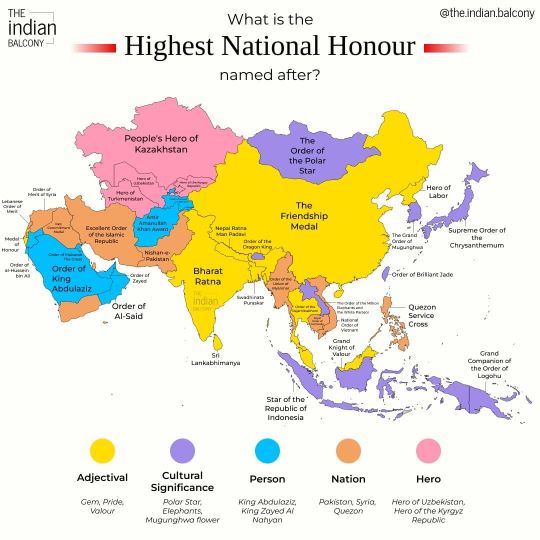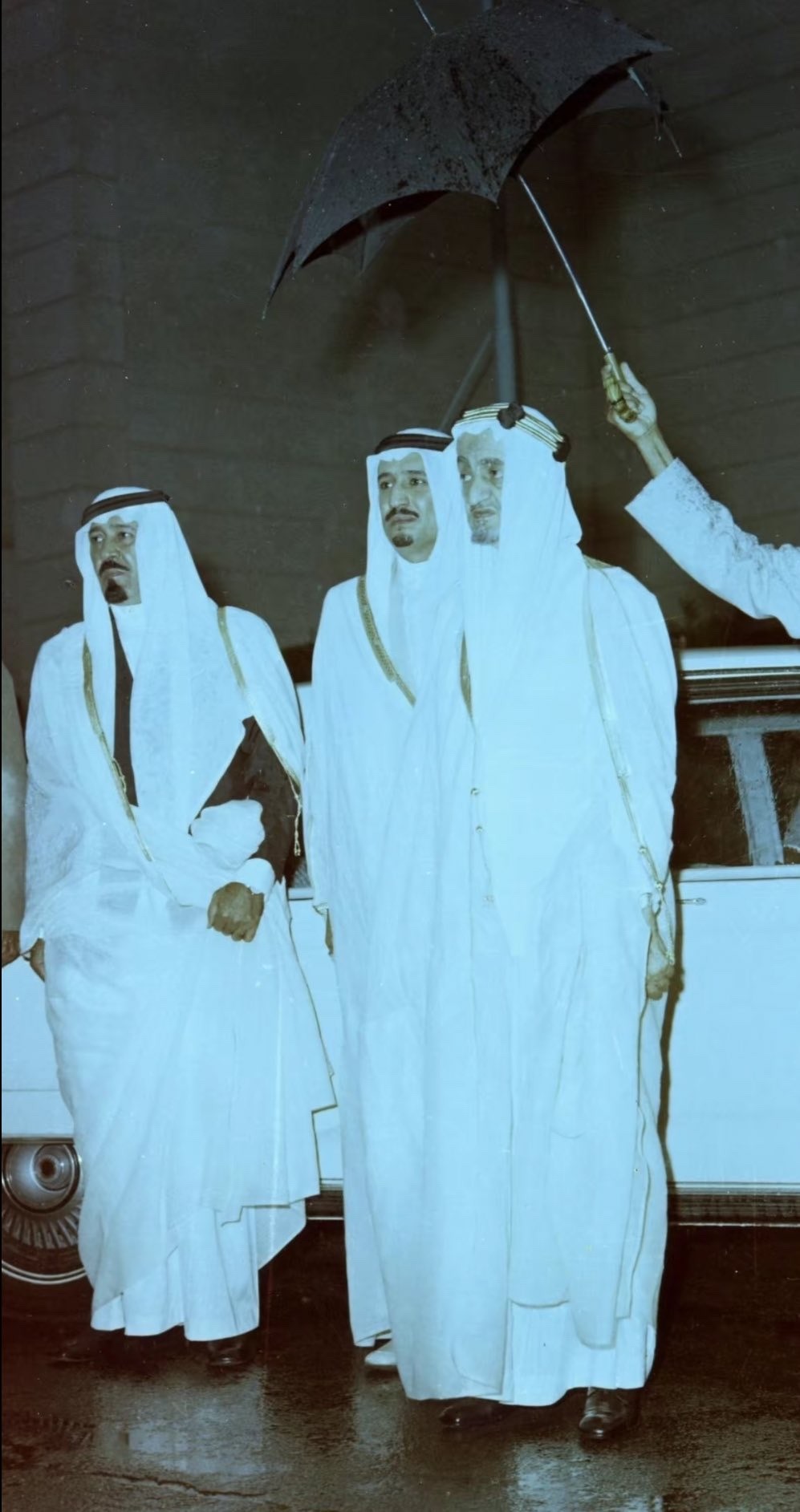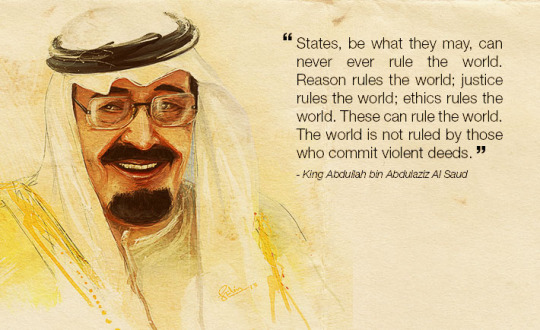#KING SAUD
Video
vimeo
EPISODE 010: Translations of Memory: The Films of Palestinian Cinema (Part One)
Understanding the history of Palestinian cinema begins with an understanding of its positioning in survival through decades of war and the diaspora of its culture. The events of the "Nakba", which sought the displacement and dispossession of an entire Palestinian nation, in 1948 set a paradigm of violence against Palestinians and the sovereignty of their land. Many of these tragic events, and those that took place leading, were captured by filmmakers alongside the birth of celluloid film technology, however, many of these films remain either lost or destroyed to this day. Film historians, and many Palestinian filmmakers, can identify Palestinian cinema through its four periods that are divided by significant markers of social change.
In Part One of Episode 010: Translations of Memory: The Films of Palestinian Cinema, we look into the signifying factors that shifted the first and second waves of Palestinian Cinema. Palestinian cinema is most recognized for its resistance to settler occupational forces that debilitated decades of independent productions, while its nation of people struggled to crystallize its unity and cultural homogeny, as much of its historical films were lost, and thus only exist today through memory and re-distributed by oral storytelling.
LA CINEASTE invites you to visit our Patreon where you can find exclusive content and written materials found in our film essays. Our Patreon also offers tiers that you can contribute to monthly.
Patreon Link
Youtube Link
Thank you for watching!
#PALESTINE#PALESTINIAN CINEMA#KHADIJA ABU ALI#MUSTAFA ABU ALI#MAI MASRI#MUHAMMED BAKRI#MICHEL KHLIEFI#RASHID MASHARAWI#NAKBA#FILM HISTORY#IBRAHIM HASSAN SIRHAN#JAMAL AL-ASPHAR#KING SAUD#OMAR A-RASHIDI#PLO#PALESTINIAN LIBERATION ORGANIZATION#FREE PALESTINE#APARTHEID#BRITISH COLONIALISM#VIDEO ESSAY#film essay#la cineaste#PATREON
35 notes
·
View notes
Note
You have mentioned your interest in reading about Saudi Arabia and I share your interest, so I want to know if you think the crown prince will actually become king eventually?
Yes, without a doubt. The Crown Prince, Mohammed bin Salman (MBS), is already the de facto ruler of Saudi Arabia and has instituted major economic, cultural, and religious reforms over the past few years that have dramatically changed Saudi Arabia. (Of course, he has also been responsible for some impulsive foreign policy disasters and brutal human rights violations.) With the possible exception of the Emirati leader, Mohammed bin Zayed (MBZ), the Saudi Crown Prince is already the most powerful leader in the Arab world.
King Salman is still alive (at least he was a few minutes ago), so he is officially in charge, but the King is nearly 88 years old and it is believed that he has been in failing health for a while now. It's not unusual for there to be a de factor ruler while the Saudi King is still living, and in every instance that de facto ruler ultimately succeeded the King. King Saud was forced to hand over power to the future King Faisal because Saud was utterly incompetent and unfit to effectively rule the country. King Khalid, who had assumed the throne when Faisal was assassinated in 1975, handed the reins over to future King Fahd because his health was failing. Fahd suffered a massive stroke in the 1990s, and future King Abdullah stepped in as de facto ruler until he was proclaimed King upon Fahd's death. So there's a lot of precedent for the de facto ruler to eventually become King in his own right. MBS has taken about as much control over Saudi Arabia as possible while still respecting the position of his father, but he's undoubtedly the person calling the shots and he's seemingly (and, in some cases, publicly) sidelined any potential threats to his rule once King Salman dies or abdicates.
Unless there is some shocking turn of events -- and it would probably take nothing short of a revolution at this point -- MBS will eventually succeed his father as King. That will make him the first grandson of Ibn Saud, the founder of the modern Saudi state, to become King. Since the death of Ibn Saud in 1953, every one of his successors as King of Saudi Arabia has been one of his roughly 50 sons. And because MBS is still so young (he's only 38 years old right now), he will likely have the opportunity to rule Saudi Arabia and become the most influential leader in the Middle East for decades to come.
#History#Saudi Arabia#Middle East#King of Saudi Arabia#Crown Prince of Saudi Arabia#House of Saud#Mohammed bin Salman#MBS#King Salman#Ibn Saud#Saudi Kings#Saudi Succession
19 notes
·
View notes
Note
Argenti writes a whole ass book of poems about Boothill. This can either be platonic or romantic and the poems are exactly the same. The difference is the ink color and how loopy it is
I am #1 Aromantic Argenti headcannon supporter. Argenti just loves life so much he needs to yap constantly. About beauty.
#im actually obsessed that argenti saud he thought boothill was a pottymouthed savage#he uses such autistic ways of speaking... my king....
2 notes
·
View notes
Text
He had 10 twitter followers.
Finnish people please sign this Amnesty petition.
3 notes
·
View notes
Text
King Salman Allows Saudi Cabinet To Meet Without Him Or Crown Prince
#SaudiArabia's #KingSalman has issued a decree allowing cabinet meetings to proceed without his or #CrownPrince #MBC's presence. The eldest cabinet member, a descendant of the founding king, will chair meetings in their absence. #Cabinet #RoyalDecree
Continue reading King Salman Allows Saudi Cabinet To Meet Without Him Or Crown Prince
0 notes
Text
KING SAUD Movie Review
King Saud harks back to classic detective noir with a blend of international intrigue and murder mystery. While the first half struggles with pacing, the second and third acts find their stride, culminating in a satisfying conclusion. A tighter edit, trimming 15 to 20 minutes, would have elevated the film further.

Mark Toma, who wrote, directed, and starred in King Saud, delivers a commendable performance as Det. Wolfe. However, it is Kate Orsini as Det. Lynch who truly shines. Despite her character being subjected to objectification and rough treatment, Orsini infuses Lynch with depth and determination, transcending the limited dialogue to portray a powerful, fully realized character. Mike Saad also deserves special mention for his compelling portrayal of Al Mahir, bringing complexity and excellence to his role.
The film's indie roots are evident, with a limited budget reflected in its cinematography and amateurish editing, including poorly timed reaction shots. The dialogue often feels clunky and overly expository. Nevertheless, these elements contribute to the gritty atmosphere of a hard-bitten cop tale, adding to its charm rather than detracting from it.
Some aspects of the film’s setup are problematic. The portrayal of Islamic culture as the ultimate evil feels overdone, and the use of World Trade Center attack footage in a B movie context feels somewhat exploitative. Despite this, King Saud weaves an engaging story that should keep viewers guessing until the final scene, with the plot falling into place in an entertaining manner. Worth a watch.
= = =
B.E. Ladd
0 notes
Text
Arabia Saudita, dalla "grande grotta" di Umm Jirsan riemergono le tracce della vita dei pastori di 8mila anni fa
Studi / Arabia Saudita, dalla "grande grotta" di Umm Jirsan riemergono le tracce della vita dei pastori di 8mila anni fa
Redazione
Tracce di insediamenti di pastori risalente al periodo neolitico, e frequentato per migliaia di anni fino all’età del Rame e del Bronzo, riemergono dalla grotta di Umm Jirsan, nell’Arabia Saudita nord-occidentale. Ad annunciarlo è la Commissione per il Patrimonio Saudita, responsabile della documentazione e della conservazione del patrimonio materiale e immateriale dell’Arabia Saudita…

View On WordPress
#Arabia Saudita#archeologia#Età del Bronzo#Età del Rame#Green Arabian Peninsula#grotta di Umm Jirsan#Max Planck Institute for Evolutionary Anthropology di Lipsia#neolitico#notizie#Penisola Arabica#Plos One#scavi#scavi archeologici#scoperte#Università King Saud
0 notes
Photo

What are National Honours named after?
What are National Honours named after? The Highest National Honour of a Country carries immense significance as an award and prestige. But how it is named gives a direct insight to the country's culture.
The Western Asian Islamic Countries name their highest honour after one single important person like King Abdulaziz Saud (Saudi Arabia), Zayed bin Sultan (UAE) or after the country itself Nishan-e-Pakistan (Order of Pakistan) or Order of Merit of Syria. Indicating the relevance of a person and place.
While East Asian countries, generally name its highest honours after something of great cultural importance. Like Polar Star (Mongolia), Mugunghwa Flower (South Korea), Elephants (Laos). Which shows the significance and rootedness of the culture.
India, China, two of the world's most populous countries, chose to go with something which would be more inclusive for varied cultures and beliefs, hence choosing a simple adjective, Bharat Ratna (The Gem of India), The Friendship Medal (China).
While Central Asia, chose something even simpler, they called the person who won the highest national award, A Hero!
by the.indian.balcony
232 notes
·
View notes
Note
who's your favorite member of any royal family?
now why on earth would i like any person from a royal famil—



ladies and gentlemen, stand up before king faisal bin abdulaziz bin abdulrahman al saud, the ruler of the kingdom of saudi arabia from 1964 until his assassination in 1975
in this man’s time in the royal family, he singlehandedly:
issued a decree that abolished slavery
demanded that saudi princes had to be schooled inside the country, not outside (he didn’t like how white-washed and bootlicking some certain middle easter rulers were)
is the reason that saudi’s oil revenue is still high TO THIS DAY
speaking of oil, he heard that america was backing israel in 1973 in the yom kippur war, so he placed a total embargo on oil shipments, leading to the 1973 oil crisis that affected nations worldwide. america threatened to bomb saudi’s oil fields and he basically said “idfc do it lol” (the exact quote is below)
i cannot emphasize how much this guy was an anti-zionist. he loved palestine sm and he hated israel sm. he visited al-aqsa mosque while he was king and constantly spat out bangers slamming israel
emphasized equal opportunity education for men and women
established the first regular government school for girls
also made textbooks free for everyone + made sure that special provisions were made to support families who couldnt afford to educate their kids (saudi was piss poor at the time ok)
made significant investments in healthcare
and so much more omg i could go on and on about how patriotic this man makes me feel (i’m not even saudi)
here’s some cool stuff he’s said:
I beg of you, brothers, to look upon me as both brother and servant. 'Majesty' is reserved to God alone and 'The Throne' is the throne of the Heavens and Earth
– shortly after becoming king. this’ll interest muslims more than the average tumblr user, i think
But today the Arabs wish to repel the aggression of a political minority group, namely, the Zionists. It is a group which does not represent world Jewry. It is a group which is more political than religious, a group whose ways and methods are not different from those of the Nazis.
– MODERN ARAB LEADERS COULD NEVERR
You are the ones who cant live without oil. We come from the desert, our ancestors lived on dates and milk, we can easily go back and live like that again.
– his response to the usa’s threats to bomb saudi’s oil fields after he caused the 1973 oil crisis
If I were not a king, I would be a teacher.
– dying from the respect i have for this man
We consider the issue of Palestine our cause and the first Arab cause, and Palestine is more valuable to us than oil. Oil can be used as a weapon in battle if necessary. The Palestinian people must return to their homeland, even if it costs us all our lives.
– he’d be so disappointed if he saw what has come of his brother and his nephew omg
anyways yea this guy is my idol if every ruler was like him the world would be heaven dmdksoskxkx
25 notes
·
View notes
Text

I just learned about King Saud University's entrance arch and I need other universities to start building giant book architecture immediately because this absolutely slaps
45 notes
·
View notes
Text
"After you, poetry will cease."
– A Peom By Nizar Qabbani, "Bilqis" (tr. from Arabic by Yasser Aman King Saud University, Saudi Arabia)
Nizar Qabbani was a Syrian poet and diplomat who was famous for his romantic, nationalist and feminist poetry. Balqis an Iraqi woman who was his second wife. On 15th December 1981, she died in a bomb blast in the Iraqi embassy in Beirut during the Lebanese Civil War. Her death depressed him deeply, and he spent most of his life in Europe after her death. The poem was reportedly written the same day Balqis passed away.
#just read this article and the whole peom and I'm literally so close to cry now#nizar qabbani#peotry#dark academia#light academia#dark acadamia aesthetic#excerpts#fragments#poetry#books & libraries#romanticism#romantic literature#soft academia#lit#litblr#words#spilled love#spilled ink#spilled thoughts#romantic academia#books and writing#writings on tumblr#poets and writers#writers and poets#arabic poems#arabic poetry#on love#writers on tumblr#book quotes#booklr
483 notes
·
View notes
Text

Kings Faisal,Abdullah and Salman Al-saud
32 notes
·
View notes
Text
On the topic of fantasy pet peeves, or rather fantasy criticism pet peeves, I see a lot of people make a big deal about "lazy worldbuilding" when a kingdom shares the name of either its ruling dynasty. This isn't exclusively a charge levied against media of East Asian origin, but it certainly shows up there a lot.
Now this was very unusual in medieval Europe. Most European countries are derived from tribal names: the Franks became France, the Danes became Denmark, the Angles became England, the Poles became Poland, et cetera. (Though often with a fair bit of migration.) Many others come from their provincial designations under the rule of larger states: Roman Hispania became España; Habsburg-era "pays d'embas", "lands down there", was translated literally into Dutch as Nederlanden.
Pre-medieval kingdoms - most notably the Merovingian and Carolingian Empires - were referred to by their ruling dynasties, but this came to a pretty significant end because of the Germanic tradition of partitive succession. Lands were divided between the heirs instead of passed to a singular successor, leading to a single dynasty ruling multiple different realms - most notably for Carolingians, who in two generations went from controlling most of Western Europe as a unified Frankish Empire to five kingdoms who were often at war with each other.
Needless to say, the rule of several hostile kingdoms by the same nominal dynasty quickly put the kibosh on any sense of dynastic naming in Europe, and tribal names came to dominate as things were formalised in the medieval period. Not so for much of the rest of the world. (Or Liechtenstein.)
Almost every major Arab state took its name from the ruling dynasty, which spread to many non-Arab Muslim realms such as the Ottoman Empire (named for the ruling House of Osman, also called the Ottomans), the Ghaznavid Empire (ruled by the Ghaznavid dynasty), the Timurid Empire (ruled by, surprising no one, the Timurid dynasty)...
Likewise, China is pretty much exclusively described historically in terms of its dynasties, who traditionally picked a new name for their state and government when they came to power. While there was a general idea of a territorial "China" (Chinese Zhongguo, often translated as "Middle Kingdom"), it was only rarely used compared to the dynastic titles. (As far as I'm aware, only the Qing ever really used it in an official context to refer to themselves, and even then the official name was still "(Great) Qing".)
Indian historiography is a bit split; the Maurya and Gupta Empires are referred to by their dynasty, but also as dynasties of a territorial/tribal Magadha Kingdom. The Pala Empire is solely named for its dynasty, but was the successor state of the Gauda Kingdom, named for its territory.
The Aztecs were primarily defined in terms of their city-states, but the Mayans were split between city names and dynastic ones at the time of the Spanish invasion. (Or at least they seem to be; it's hard to find good sources on the etymology of Mayan principalities in English.)
(I'd put in a note about the Incan Empire as well; "Inca" in Quechua essentially means "king" or "nobleman", so a literal English interpretation of "Incan Empire" would be "Emperor's Empire". The endonym for the Incan Empire translates to something like "union of four provinces", with two of the provinces being ethnonyms and two being directional. One of the directional ones might be both, and it's unclear which came first. Honestly, you could do another post about this just for directional names...)
So yes, "King X of the Kingdom of X" is a completely normal thing. Hell, we have two countries that do it today - Liechtenstein (ruled by the House of Liechtenstein) and Saudi Arabia (ruled by the House of Saud). (Both of them are absolute monarchies.)
18 notes
·
View notes



